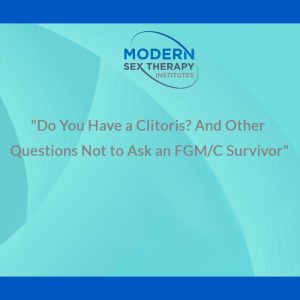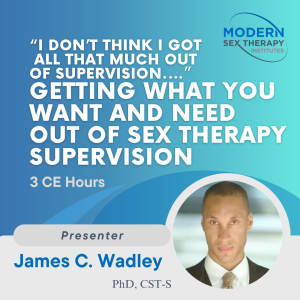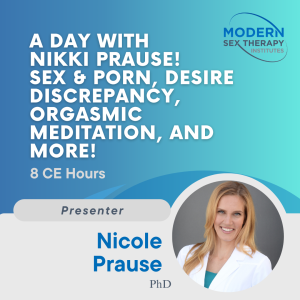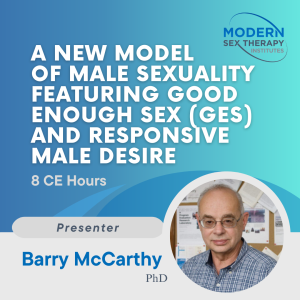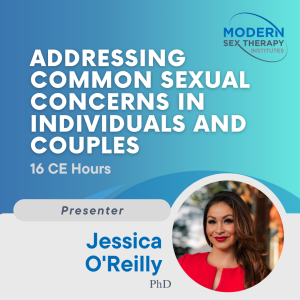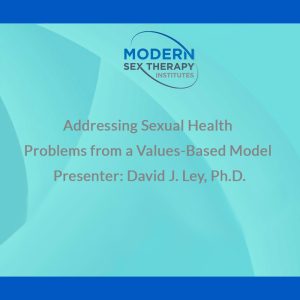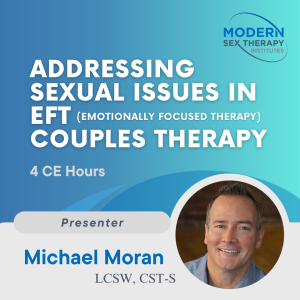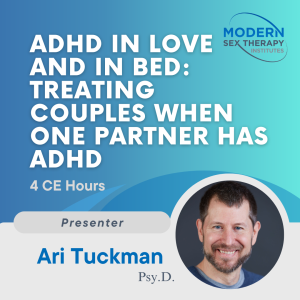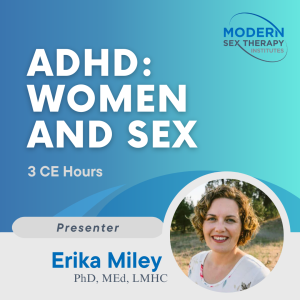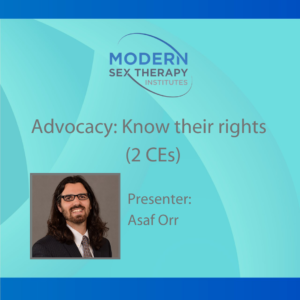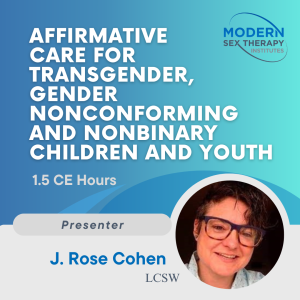Showing 1–12 of 330 results
-
“Do You Have a Clitoris?” And Other Questions Not to Ask an FGM/C Survivor
$80.00 -
“I don’t think I got all that much out of supervision.…” Getting what you want and need out of sex therapy supervision (3 CE Hours)
$120.00 -
A Day with Nikki Prause! Sex & porn, desire discrepancy, orgasmic meditation and more!! (8 CE Hours)
$320.00 -
A New Model of Male Sexuality Featuring Good Enough Sex (GES) and Responsive Male Desire
$320.00 -
Addressing Common Sexual Concerns In Individuals and Couples (16 CE Hours)
$640.00 -
Addressing Sexual Health Problems from a Values-Based Model Presenter: David J. Ley, Ph.D.
$320.00 -
Addressing Sexual Issues in EFT (Emotionally Focused Therapy) Couples Therapy (4 CE Hours)
$160.00 -
ADHD in Love and in Bed: Treating Couples When One Partner Has ADHD
$160.00 -
ADHD: Women and Sex (3 CE Hours)
$120.00 -
Advocacy Know their rights ( 2 CE Hours)
$80.00 -
Affirmative Care for Families of Transgender Gender Expansive Children & Youth ( 2 CE Hours )
$40.00 -
Affirmative Care for Transgender, Gender Nonconforming and Nonbinary Children and Youth (1.5 CE Hours)
$60.00

